rylah
Gold Member
- Jun 10, 2015
- 23,413
- 4,954
- 290
Follow along with the video below to see how to install our site as a web app on your home screen.
Note: This feature may not be available in some browsers.
(COMMENT)Israel has no defined territory.
A requirement for statehood.
In 1949 they created the Green Line because Israel has no border there. In 2000 they created the Blue Line because Israel has no border there. It is still called the Blue Line because Israel still has no border there.❖ The International Boundary between Israel and Lebanon was established pursuant to the 1923 Agreement between France and Great Britain ...", that "this line was reaffirmed in the Israeli-Lebanese General Armistice Agreement signed on 23 March 1949" and that "subsequently there were several modifications mutually agreed by Israel and Lebanon". Last Letter Agreement reaffirms the boundary in the Letter dated 9 June 2000 from the President of Lebanon addressed to the Secretary-General •
In 1949 they created the Green Line because Israel has no border there. In 2000 they created the Blue Line because Israel has no border there. It is still called the Blue Line because Israel still has no border there.
The surrounding Arab states refused to recognise Israel, meaning its borders remained unset.
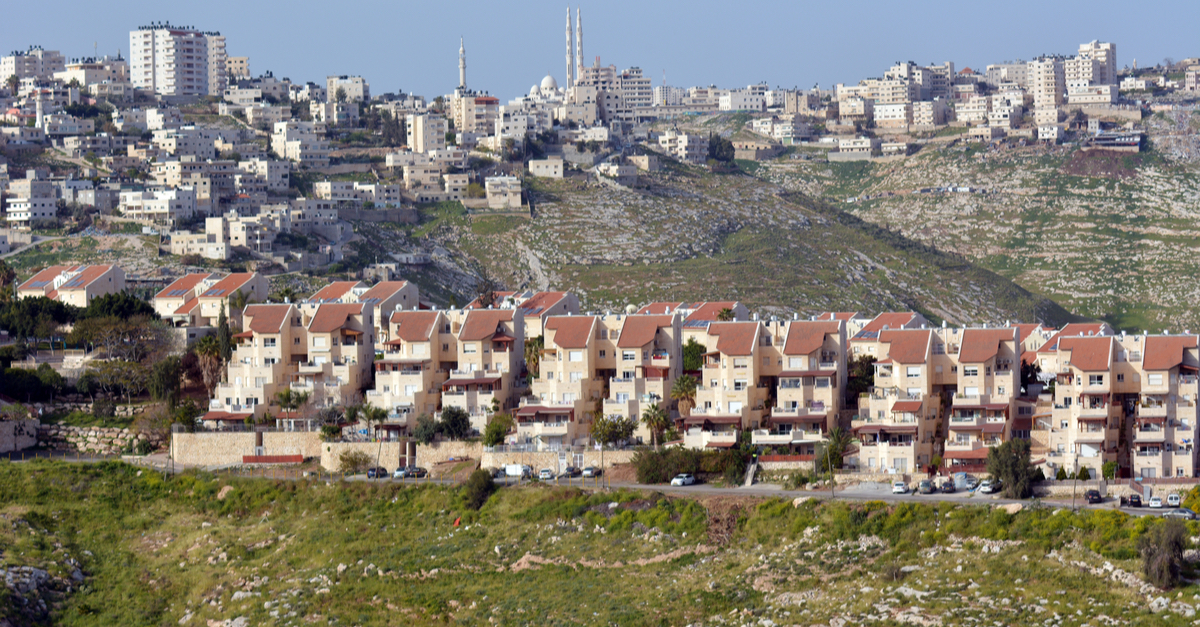
 5pillarsuk.com
5pillarsuk.com
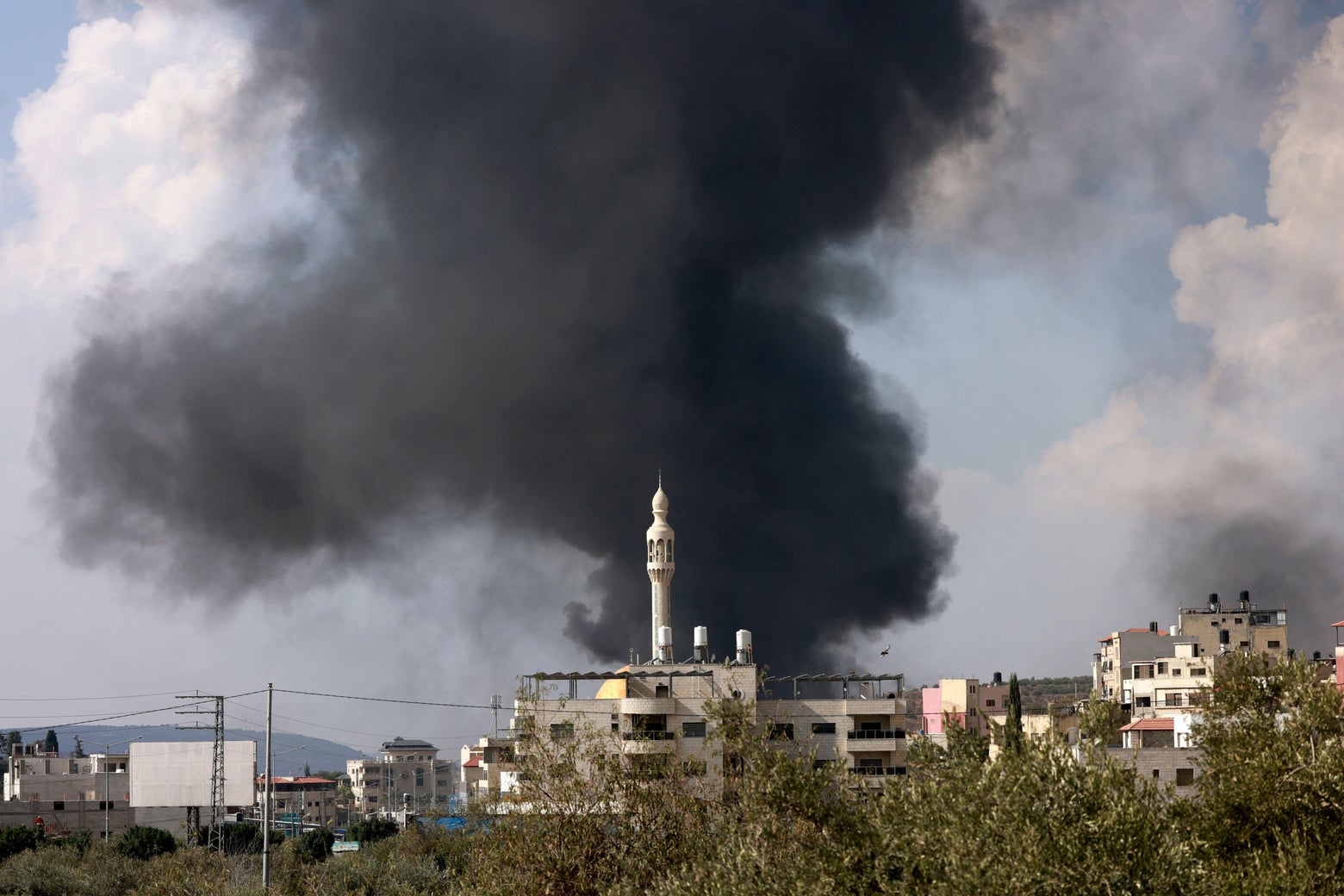

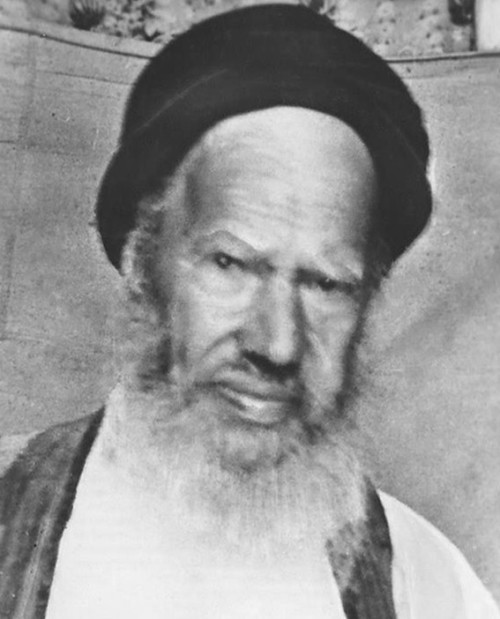
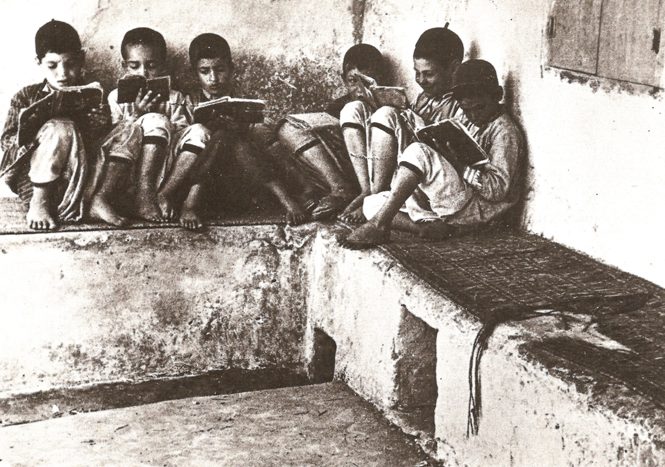
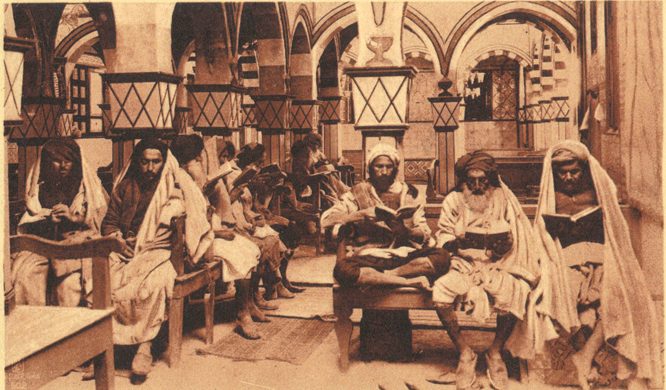
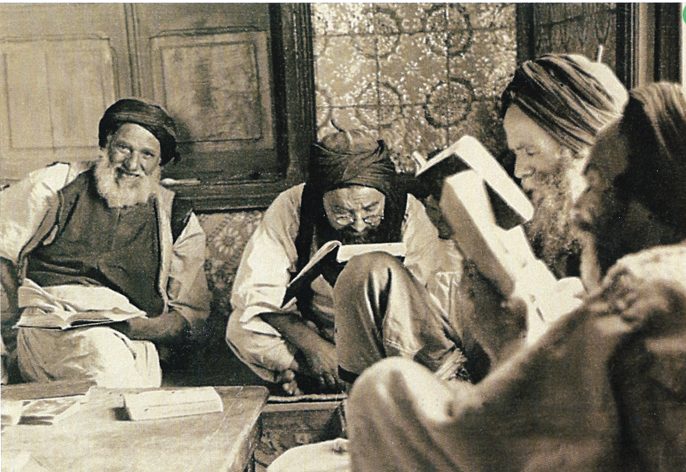


Rabbi Mosheh Calfon | North African Zionism
Early Zionist leader and 'Global Village' visionary

Rabbi Calfon Mosheh HaCohen (1874-1950) was the chief rabbi of Djerba, of the greatest scholars of Tunisia. Wrote numerous books, among them on the topics of Hebrew law, education, morality, sermons, and responsa.
An enthusiastic supporter of Zionism, all his life activity was to return to Eretz Yisrael.
Wrote a cosmopolitan vision, professing world peace and the establishment of an organization similar to the UN in Jerusalem. Passed away in Jerbah on the eve of moving to Israel, and in 2005 his bones were buried in Jerusalem.
The family of Rabbi HaCohen was from the attributed family Cohen Abri"sh, according to tradition descendants of 'Ezra HaSofer. His grand-grandfather Rabbi Shaul HaCohen was the head of court in the small quarter on the island of Djerba. His grandfather from the father's side is Rabbi Moseh HaCohen, the author of the book "Pnei Mosheh", after whom he was named. His father, Rabbi Shalom, authored the books "Nahar Shalom", "Hefetz Yakar", and "Hayyim Shalom", who was the head of court in Jirjis near Djerba.

Born in 1874 to Rabbi Shalom Vetraci, on the island of Djerba in south Tunisia. During childhood, his family knew years of prosperity and wealth and was known for generous support for scholars and the poor of Jerbah. During his teenage years, the family's situation worsened and he had to help the housing economy, for which among other things he used to proofread and copy books. Studied with his father and with Rabbi Yosef Barabi, later the Chief Rabbi of Djerba.
When his father was called to lead the community of Jirjis, Rabbi Calfon Mosheh HaCohen was asked to be the Shohet. At 17, learned Shhitah from Rabbi Binyamin Hadad, and served as a Shohet and examiner. Following the hard working conditions, during the summer days under the sun, became ill with fever and his vision was injured. Despite that, initially didn't want to stop his work to support the house, but after many entreaties returned to Djerba to continue his study.

In 1895 Rabbi HaCohen married Msi'adah, a cousin on his mother's side, and the couple had 3 sons and 4 daughters. One of the sons, Rabbi Shushan HaCohen, after making Aliyah, was appointed the Rabbi of the village of Eitan in Israel.
When he was 25 was asked to accept membership in the Beit Din (Hebrew court) of Jerbah, but rejected arguing he didn't want to receive any goods from the public. Despite his rejection, over the years various propositions kept reaching him, to serve in various Rabbinic positions, sometimes with promises of major respected rewards, but he always rejected.

In 1917, at 43 years, was eventually appointed as a member of the Beit Din in Jerbah, however then as well rejected the offer to head the court, rather only as of the 3rd judge, and only at certain hours of the day. In practice, the conditions didn't fulfill, and all-day he was busy with almost all of Jerbah's cour carried on his shoulders. Several times considered leaving the position due to his health conditions and the load of work.


His leadership stood out at critical times when the Nazi invaders into Djerbah demanded 50kg of gold from the Jewish community. This was on Sabbath and he drove with them all over the Jewish neighborhoods, obliging every Jew to bring all the gold in possession.
At 75 Rabbi Calfon fell fataly ill. After a short improvement, he passed on Sabbath, 7th of June 1950. On the day of his burial, the surrounding towns were almost emptied of Jews, and the main marketplace in Jerbah (owned mostly by Jews) was closed. Tens of thousands, among whom were Tunisian and French governors took part in the funeral.
Was buried in Djerbah, but in 2005, 55 years after his passing, his bones were brought from Tunisia to Israel, and buried on the mountain of Menuhot in Jerusalem, by Rabbi Shalom Msas.
In the funeral procession that lasted 3 days, took part tens of thousands from Israel, Tunisia, and France, among them Rabbi Mordechai Elyahu and Rabbi 'Ovadiah Yosef.
Named after him, are various synagogues, schools, as well as streets in the cities of Netivot, Ashkelon, and a street in Jerusalem.
Due to the establishment of the 'Alliance' schools in Tunisia, objected with his cousin Rabbi Mordechai Amyas HaCohen against many, including Rabbi Yisrael Zayton, the Chief Rabbi of Tunisia, preferring to keep traditional Torah education. After the school was established, most Djerba residents listened to Rabbi Calfon, and didn't send their children to study there.
Despite opposing modernization in the Alliance schools, Rabbi Calfon was an enthusiastic supporter of the Zionist movement, despite knowing its central figures were far from tradition, he wrote -
"In our days, many of our brothers of the house of Israel though didn't grow up on the knees of Judaism, Torah, and commandments, and their judgment is as of abducted children among the nations. However, in their heart awakened a nationalist emotion, for the love of existence of the Israeli nation, and its persistence to be a separate nation from the nations of the world." - from the pamphlet "Geulat Mosheh" in his book "Zchut Mosheh".
Referring to Binyamin Zeev Herzl he wrote -
"In our days, an exalted man has risen among us, a man of character with a clear mind and sharp ideas, Binyamin Zeev Herzl is his name...came up with a wonderful idea, fo everyone to gather under the shade of the Zionist community and be called Zionists...and knocked on the gates of kings and counts - to take from them a clear ruling, for Eretz Yisrael to be for us as before".
In 1919 was among the founders of the Zionist movement "Ateret Zion" in Djerba, which acted in coordination with KKL and Keren HaYesod, to strengthen the Hebrew language, and her members were constantly updated about news from the land of Israel, through Hebrew newspapers like "HaLevanon", "HaMagid", "HaTzfirah" and "HaHavatzelet".
In his lesson during Shabat of Torah portion "Naso", 12th of Sivan, several days after the San Remo conference and confirmation of the Balfour Declaration by the League of Nations said that this was "the beginning of the redemption". He wrote and edited the lesson at the end of Shabat, and published it as the "The Fifth Sermon For The Beginning Of Redemption" in his book "Matte Mosheh", writing the following - "from now on there is no doubt this is the beginning of the redemption, and every man of Israel should thank thousands of time to G-d for the redemption and salvation, for G-d has commanded his nation and brought us from bondage to redemption".
Rabbi Calfon explained that getting familiar with Eretz Yisrael will significantly increase Aliyah, and in a vision, he wrote in the 1920s, suggested organizing visits of young Jews from around the world to Eretz Yisrael with the funding of the Zionist movement. A similar idea was fulfilled with the establishment of the "Taglit" organization in the year 2000.
Rabbi Calfon supported 'Aliyah and made sure the community members support the immigrants. He also called for purchasing parcels of land in the country and worked for the revival of the Hebrew language. With the establishment of the state of Israel, ruled for the Israeli Independence Day to be celebrated on the island of Djerba for entire 3 days.
In the year 1897, when at 24, tried for the first time to make 'Aliyah with the help of a friend from Tripoli, with whom he befriended during visits to cure his eyes. However, after the journey had already been organized, his father heard of this and wanted to talk him out of it, arguing that according to his counting the Mashiah comes in the year 1916 and he would wait till then. In order not to sadden his father Rabbi Mosheh Calfon HaCohen listened to his father and gave up on the opportunity to make 'Aliyah, an opportunity he regretted all his days.
In preparation for the 'Aliyah bought a parcel of land in the Beit HaCerem neighborhood in Jerusalem, and in his late days, while his health was precarious, decided to try making 'Aliyah once again. In the year 1949, he acquired a permit for 'Aliyah, and his son Shushan went to Tunis to order the documents. However, due to illness, his 'Aliyah was postponed as his health condition deteriorated, which didn't improve till his passing.
In his early writings, before the state of Israel was established, he judged detailed practical governmental ideas, not only in reference to the Zionist idea but also clearly cosmopolitan ideas.
Following the Russia-Japan war breaking out in 1904, Rabbi Calfon came to the conclusion, that Torah of Israel is not complete with only the liberation of Israel, but seeks to build a whole corrected world for all humanity. He formulated a wide cosmopolitan vision, mechanisms and institutions which will establish world peace.
Due to his suspicion that his word won't be accepted, due to his status and the status of the relatively sideline country in which he lived, Rabbi Calfon archived the vision. An Arabic newspaper reached him 15 years later, revealing before him to his surprise similar political ideas to which he wrote about in 1905. Since then decided it was his duty to publish his ideas publically.
In the early 20s of the 20th century, Rabbi Calfon gave speeches in which he focused on the need to deal with international law, and formulated in detail a practical proposition for the establishment of a world government and the establishment of international law. He advanced mechanisms for solving international conflicts and formulated a political-state program including many goals.
Rabbi Calfon called for the establishment in Jerusalem of an international committee and an international court to examine the conduct of the countries according to the wellbeing of all humanity, to include representatives from all countries which together decide in international conflicts and prevent the use of force and violence. This idea, which was realized later with the establishment of the UN, included several additional ideas, among which, an International army to treat countries not willing to follow the counsel of the nations, a council to act for education to tolerance in a moral way, the idea for the establishment of a central world bank, which partial income will be leveraged to the poor of the countries, and an international currency for trade, which value is equal in all countries. The latter idea was realized as well, with the invention of the BitCoin, a couple of decades later.
Rabbi Calfon explained that the establishment of the major center of the international committee should be in Jerusalem, 'for there is great hope for all nations - we Jews, the Christians and Ishmaelites'.
With the strengthening of the movement for the return to Zion and the Belfour Declaration, the revival of the Hebrew language and the improvement of the conditions for Jews in developed countries Rabbi Calfon saw the beginning of the redemption age.
Rabbi Calfon saw technological development as a means for the world to become a global village, requiring the world countries to come to the help of countries in distress as part of mutual guarantee and world peace. The last term was also a religious obligation, and technological development symbolized in his view the basis for a higher spiritual level.
Among his books, more than 50 writings have been published dealing with all aspects of Judaism.
Can't understand Israel without learning who is Baba Sali Z"L
I'm surely not the one to tell the story of this Tzadik, it's hard to put in words.
But if You want to understand the modern Israeli atmosphere, You have to attempt and grasp who were and are the sages at the heart of this nation.

Baba Sali or Rabbi Yisrael Abahzeira presence and life in Israel during the hardest times was a great privilege and care bestowed upon the nation dwelling in Zion.
Learn about him, read the stories... though it will be probably hard to grasp, but so is the story of Israel.
Rabbi Mosheh Calfon | North African Zionism
Early Zionist leader and 'Global Village' visionary

Rabbi Calfon Mosheh HaCohen (1874-1950) was the chief rabbi of Djerba, of the greatest scholars of Tunisia. Wrote numerous books, among them on the topics of Hebrew law, education, morality, sermons, and responsa.
An enthusiastic supporter of Zionism, all his life activity was to return to Eretz Yisrael.
Wrote a cosmopolitan vision, professing world peace and the establishment of an organization similar to the UN in Jerusalem. Passed away in Jerbah on the eve of moving to Israel, and in 2005 his bones were buried in Jerusalem.
The family of Rabbi HaCohen was from the attributed family Cohen Abri"sh, according to tradition descendants of 'Ezra HaSofer. His grand-grandfather Rabbi Shaul HaCohen was the head of court in the small quarter on the island of Djerba. His grandfather from the father's side is Rabbi Moseh HaCohen, the author of the book "Pnei Mosheh", after whom he was named. His father, Rabbi Shalom, authored the books "Nahar Shalom", "Hefetz Yakar", and "Hayyim Shalom", who was the head of court in Jirjis near Djerba.

Born in 1874 to Rabbi Shalom Vetraci, on the island of Djerba in south Tunisia. During childhood, his family knew years of prosperity and wealth and was known for generous support for scholars and the poor of Jerbah. During his teenage years, the family's situation worsened and he had to help the housing economy, for which among other things he used to proofread and copy books. Studied with his father and with Rabbi Yosef Barabi, later the Chief Rabbi of Djerba.
When his father was called to lead the community of Jirjis, Rabbi Calfon Mosheh HaCohen was asked to be the Shohet. At 17, learned Shhitah from Rabbi Binyamin Hadad, and served as a Shohet and examiner. Following the hard working conditions, during the summer days under the sun, became ill with fever and his vision was injured. Despite that, initially didn't want to stop his work to support the house, but after many entreaties returned to Djerba to continue his study.

In 1895 Rabbi HaCohen married Msi'adah, a cousin on his mother's side, and the couple had 3 sons and 4 daughters. One of the sons, Rabbi Shushan HaCohen, after making Aliyah, was appointed the Rabbi of the village of Eitan in Israel.
When he was 25 was asked to accept membership in the Beit Din (Hebrew court) of Jerbah, but rejected arguing he didn't want to receive any goods from the public. Despite his rejection, over the years various propositions kept reaching him, to serve in various Rabbinic positions, sometimes with promises of major respected rewards, but he always rejected.

In 1917, at 43 years, was eventually appointed as a member of the Beit Din in Jerbah, however then as well rejected the offer to head the court, rather only as of the 3rd judge, and only at certain hours of the day. In practice, the conditions didn't fulfill, and all-day he was busy with almost all of Jerbah's cour carried on his shoulders. Several times considered leaving the position due to his health conditions and the load of work.


His leadership stood out at critical times when the Nazi invaders into Djerbah demanded 50kg of gold from the Jewish community. This was on Sabbath and he drove with them all over the Jewish neighborhoods, obliging every Jew to bring all the gold in possession.
At 75 Rabbi Calfon fell fataly ill. After a short improvement, he passed on Sabbath, 7th of June 1950. On the day of his burial, the surrounding towns were almost emptied of Jews, and the main marketplace in Jerbah (owned mostly by Jews) was closed. Tens of thousands, among whom were Tunisian and French governors took part in the funeral.
Was buried in Djerbah, but in 2005, 55 years after his passing, his bones were brought from Tunisia to Israel, and buried on the mountain of Menuhot in Jerusalem, by Rabbi Shalom Msas.
In the funeral procession that lasted 3 days, took part tens of thousands from Israel, Tunisia, and France, among them Rabbi Mordechai Elyahu and Rabbi 'Ovadiah Yosef.
Named after him, are various synagogues, schools, as well as streets in the cities of Netivot, Ashkelon, and a street in Jerusalem.
Due to the establishment of the 'Alliance' schools in Tunisia, objected with his cousin Rabbi Mordechai Amyas HaCohen against many, including Rabbi Yisrael Zayton, the Chief Rabbi of Tunisia, preferring to keep traditional Torah education. After the school was established, most Djerba residents listened to Rabbi Calfon, and didn't send their children to study there.
Despite opposing modernization in the Alliance schools, Rabbi Calfon was an enthusiastic supporter of the Zionist movement, despite knowing its central figures were far from tradition, he wrote -
"In our days, many of our brothers of the house of Israel though didn't grow up on the knees of Judaism, Torah, and commandments, and their judgment is as of abducted children among the nations. However, in their heart awakened a nationalist emotion, for the love of existence of the Israeli nation, and its persistence to be a separate nation from the nations of the world." - from the pamphlet "Geulat Mosheh" in his book "Zchut Mosheh".
Referring to Binyamin Zeev Herzl he wrote -
"In our days, an exalted man has risen among us, a man of character with a clear mind and sharp ideas, Binyamin Zeev Herzl is his name...came up with a wonderful idea, fo everyone to gather under the shade of the Zionist community and be called Zionists...and knocked on the gates of kings and counts - to take from them a clear ruling, for Eretz Yisrael to be for us as before".
In 1919 was among the founders of the Zionist movement "Ateret Zion" in Djerba, which acted in coordination with KKL and Keren HaYesod, to strengthen the Hebrew language, and her members were constantly updated about news from the land of Israel, through Hebrew newspapers like "HaLevanon", "HaMagid", "HaTzfirah" and "HaHavatzelet".
In his lesson during Shabat of Torah portion "Naso", 12th of Sivan, several days after the San Remo conference and confirmation of the Balfour Declaration by the League of Nations said that this was "the beginning of the redemption". He wrote and edited the lesson at the end of Shabat, and published it as the "The Fifth Sermon For The Beginning Of Redemption" in his book "Matte Mosheh", writing the following - "from now on there is no doubt this is the beginning of the redemption, and every man of Israel should thank thousands of time to G-d for the redemption and salvation, for G-d has commanded his nation and brought us from bondage to redemption".
Rabbi Calfon explained that getting familiar with Eretz Yisrael will significantly increase Aliyah, and in a vision, he wrote in the 1920s, suggested organizing visits of young Jews from around the world to Eretz Yisrael with the funding of the Zionist movement. A similar idea was fulfilled with the establishment of the "Taglit" organization in the year 2000.
Rabbi Calfon supported 'Aliyah and made sure the community members support the immigrants. He also called for purchasing parcels of land in the country and worked for the revival of the Hebrew language. With the establishment of the state of Israel, ruled for the Israeli Independence Day to be celebrated on the island of Djerba for entire 3 days.
In the year 1897, when at 24, tried for the first time to make 'Aliyah with the help of a friend from Tripoli, with whom he befriended during visits to cure his eyes. However, after the journey had already been organized, his father heard of this and wanted to talk him out of it, arguing that according to his counting the Mashiah comes in the year 1916 and he would wait till then. In order not to sadden his father Rabbi Mosheh Calfon HaCohen listened to his father and gave up on the opportunity to make 'Aliyah, an opportunity he regretted all his days.
In preparation for the 'Aliyah bought a parcel of land in the Beit HaCerem neighborhood in Jerusalem, and in his late days, while his health was precarious, decided to try making 'Aliyah once again. In the year 1949, he acquired a permit for 'Aliyah, and his son Shushan went to Tunis to order the documents. However, due to illness, his 'Aliyah was postponed as his health condition deteriorated, which didn't improve till his passing.
In his early writings, before the state of Israel was established, he judged detailed practical governmental ideas, not only in reference to the Zionist idea but also clearly cosmopolitan ideas.
Following the Russia-Japan war breaking out in 1904, Rabbi Calfon came to the conclusion, that Torah of Israel is not complete with only the liberation of Israel, but seeks to build a whole corrected world for all humanity. He formulated a wide cosmopolitan vision, mechanisms and institutions which will establish world peace.
Due to his suspicion that his word won't be accepted, due to his status and the status of the relatively sideline country in which he lived, Rabbi Calfon archived the vision. An Arabic newspaper reached him 15 years later, revealing before him to his surprise similar political ideas to which he wrote about in 1905. Since then decided it was his duty to publish his ideas publically.
In the early 20s of the 20th century, Rabbi Calfon gave speeches in which he focused on the need to deal with international law, and formulated in detail a practical proposition for the establishment of a world government and the establishment of international law. He advanced mechanisms for solving international conflicts and formulated a political-state program including many goals.
Rabbi Calfon called for the establishment in Jerusalem of an international committee and an international court to examine the conduct of the countries according to the wellbeing of all humanity, to include representatives from all countries which together decide in international conflicts and prevent the use of force and violence. This idea, which was realized later with the establishment of the UN, included several additional ideas, among which, an International army to treat countries not willing to follow the counsel of the nations, a council to act for education to tolerance in a moral way, the idea for the establishment of a central world bank, which partial income will be leveraged to the poor of the countries, and an international currency for trade, which value is equal in all countries. The latter idea was realized as well, with the invention of the BitCoin, a couple of decades later.
Rabbi Calfon explained that the establishment of the major center of the international committee should be in Jerusalem, 'for there is great hope for all nations - we Jews, the Christians and Ishmaelites'.
With the strengthening of the movement for the return to Zion and the Belfour Declaration, the revival of the Hebrew language and the improvement of the conditions for Jews in developed countries Rabbi Calfon saw the beginning of the redemption age.
Rabbi Calfon saw technological development as a means for the world to become a global village, requiring the world countries to come to the help of countries in distress as part of mutual guarantee and world peace. The last term was also a religious obligation, and technological development symbolized in his view the basis for a higher spiritual level.
Among his books, more than 50 writings have been published dealing with all aspects of Judaism.


Rabbi Mosheh Calfon | North African Zionism
Early Zionist leader and 'Global Village' visionary

Rabbi Calfon Mosheh HaCohen (1874-1950) was the chief rabbi of Djerba, of the greatest scholars of Tunisia. Wrote numerous books, among them on the topics of Hebrew law, education, morality, sermons, and responsa.
An enthusiastic supporter of Zionism, all his life activity was to return to Eretz Yisrael.
Wrote a cosmopolitan vision, professing world peace and the establishment of an organization similar to the UN in Jerusalem. Passed away in Jerbah on the eve of moving to Israel, and in 2005 his bones were buried in Jerusalem.
The family of Rabbi HaCohen was from the attributed family Cohen Abri"sh, according to tradition descendants of 'Ezra HaSofer. His grand-grandfather Rabbi Shaul HaCohen was the head of court in the small quarter on the island of Djerba. His grandfather from the father's side is Rabbi Moseh HaCohen, the author of the book "Pnei Mosheh", after whom he was named. His father, Rabbi Shalom, authored the books "Nahar Shalom", "Hefetz Yakar", and "Hayyim Shalom", who was the head of court in Jirjis near Djerba.

Born in 1874 to Rabbi Shalom Vetraci, on the island of Djerba in south Tunisia. During childhood, his family knew years of prosperity and wealth and was known for generous support for scholars and the poor of Jerbah. During his teenage years, the family's situation worsened and he had to help the housing economy, for which among other things he used to proofread and copy books. Studied with his father and with Rabbi Yosef Barabi, later the Chief Rabbi of Djerba.
When his father was called to lead the community of Jirjis, Rabbi Calfon Mosheh HaCohen was asked to be the Shohet. At 17, learned Shhitah from Rabbi Binyamin Hadad, and served as a Shohet and examiner. Following the hard working conditions, during the summer days under the sun, became ill with fever and his vision was injured. Despite that, initially didn't want to stop his work to support the house, but after many entreaties returned to Djerba to continue his study.

In 1895 Rabbi HaCohen married Msi'adah, a cousin on his mother's side, and the couple had 3 sons and 4 daughters. One of the sons, Rabbi Shushan HaCohen, after making Aliyah, was appointed the Rabbi of the village of Eitan in Israel.
When he was 25 was asked to accept membership in the Beit Din (Hebrew court) of Jerbah, but rejected arguing he didn't want to receive any goods from the public. Despite his rejection, over the years various propositions kept reaching him, to serve in various Rabbinic positions, sometimes with promises of major respected rewards, but he always rejected.

In 1917, at 43 years, was eventually appointed as a member of the Beit Din in Jerbah, however then as well rejected the offer to head the court, rather only as of the 3rd judge, and only at certain hours of the day. In practice, the conditions didn't fulfill, and all-day he was busy with almost all of Jerbah's cour carried on his shoulders. Several times considered leaving the position due to his health conditions and the load of work.


His leadership stood out at critical times when the Nazi invaders into Djerbah demanded 50kg of gold from the Jewish community. This was on Sabbath and he drove with them all over the Jewish neighborhoods, obliging every Jew to bring all the gold in possession.
At 75 Rabbi Calfon fell fataly ill. After a short improvement, he passed on Sabbath, 7th of June 1950. On the day of his burial, the surrounding towns were almost emptied of Jews, and the main marketplace in Jerbah (owned mostly by Jews) was closed. Tens of thousands, among whom were Tunisian and French governors took part in the funeral.
Was buried in Djerbah, but in 2005, 55 years after his passing, his bones were brought from Tunisia to Israel, and buried on the mountain of Menuhot in Jerusalem, by Rabbi Shalom Msas.
In the funeral procession that lasted 3 days, took part tens of thousands from Israel, Tunisia, and France, among them Rabbi Mordechai Elyahu and Rabbi 'Ovadiah Yosef.
Named after him, are various synagogues, schools, as well as streets in the cities of Netivot, Ashkelon, and a street in Jerusalem.
Due to the establishment of the 'Alliance' schools in Tunisia, objected with his cousin Rabbi Mordechai Amyas HaCohen against many, including Rabbi Yisrael Zayton, the Chief Rabbi of Tunisia, preferring to keep traditional Torah education. After the school was established, most Djerba residents listened to Rabbi Calfon, and didn't send their children to study there.
Despite opposing modernization in the Alliance schools, Rabbi Calfon was an enthusiastic supporter of the Zionist movement, despite knowing its central figures were far from tradition, he wrote -
"In our days, many of our brothers of the house of Israel though didn't grow up on the knees of Judaism, Torah, and commandments, and their judgment is as of abducted children among the nations. However, in their heart awakened a nationalist emotion, for the love of existence of the Israeli nation, and its persistence to be a separate nation from the nations of the world." - from the pamphlet "Geulat Mosheh" in his book "Zchut Mosheh".
Referring to Binyamin Zeev Herzl he wrote -
"In our days, an exalted man has risen among us, a man of character with a clear mind and sharp ideas, Binyamin Zeev Herzl is his name...came up with a wonderful idea, fo everyone to gather under the shade of the Zionist community and be called Zionists...and knocked on the gates of kings and counts - to take from them a clear ruling, for Eretz Yisrael to be for us as before".
In 1919 was among the founders of the Zionist movement "Ateret Zion" in Djerba, which acted in coordination with KKL and Keren HaYesod, to strengthen the Hebrew language, and her members were constantly updated about news from the land of Israel, through Hebrew newspapers like "HaLevanon", "HaMagid", "HaTzfirah" and "HaHavatzelet".
In his lesson during Shabat of Torah portion "Naso", 12th of Sivan, several days after the San Remo conference and confirmation of the Balfour Declaration by the League of Nations said that this was "the beginning of the redemption". He wrote and edited the lesson at the end of Shabat, and published it as the "The Fifth Sermon For The Beginning Of Redemption" in his book "Matte Mosheh", writing the following - "from now on there is no doubt this is the beginning of the redemption, and every man of Israel should thank thousands of time to G-d for the redemption and salvation, for G-d has commanded his nation and brought us from bondage to redemption".
Rabbi Calfon explained that getting familiar with Eretz Yisrael will significantly increase Aliyah, and in a vision, he wrote in the 1920s, suggested organizing visits of young Jews from around the world to Eretz Yisrael with the funding of the Zionist movement. A similar idea was fulfilled with the establishment of the "Taglit" organization in the year 2000.
Rabbi Calfon supported 'Aliyah and made sure the community members support the immigrants. He also called for purchasing parcels of land in the country and worked for the revival of the Hebrew language. With the establishment of the state of Israel, ruled for the Israeli Independence Day to be celebrated on the island of Djerba for entire 3 days.
In the year 1897, when at 24, tried for the first time to make 'Aliyah with the help of a friend from Tripoli, with whom he befriended during visits to cure his eyes. However, after the journey had already been organized, his father heard of this and wanted to talk him out of it, arguing that according to his counting the Mashiah comes in the year 1916 and he would wait till then. In order not to sadden his father Rabbi Mosheh Calfon HaCohen listened to his father and gave up on the opportunity to make 'Aliyah, an opportunity he regretted all his days.
In preparation for the 'Aliyah bought a parcel of land in the Beit HaCerem neighborhood in Jerusalem, and in his late days, while his health was precarious, decided to try making 'Aliyah once again. In the year 1949, he acquired a permit for 'Aliyah, and his son Shushan went to Tunis to order the documents. However, due to illness, his 'Aliyah was postponed as his health condition deteriorated, which didn't improve till his passing.
In his early writings, before the state of Israel was established, he judged detailed practical governmental ideas, not only in reference to the Zionist idea but also clearly cosmopolitan ideas.
Following the Russia-Japan war breaking out in 1904, Rabbi Calfon came to the conclusion, that Torah of Israel is not complete with only the liberation of Israel, but seeks to build a whole corrected world for all humanity. He formulated a wide cosmopolitan vision, mechanisms and institutions which will establish world peace.
Due to his suspicion that his word won't be accepted, due to his status and the status of the relatively sideline country in which he lived, Rabbi Calfon archived the vision. An Arabic newspaper reached him 15 years later, revealing before him to his surprise similar political ideas to which he wrote about in 1905. Since then decided it was his duty to publish his ideas publically.
In the early 20s of the 20th century, Rabbi Calfon gave speeches in which he focused on the need to deal with international law, and formulated in detail a practical proposition for the establishment of a world government and the establishment of international law. He advanced mechanisms for solving international conflicts and formulated a political-state program including many goals.
Rabbi Calfon called for the establishment in Jerusalem of an international committee and an international court to examine the conduct of the countries according to the wellbeing of all humanity, to include representatives from all countries which together decide in international conflicts and prevent the use of force and violence. This idea, which was realized later with the establishment of the UN, included several additional ideas, among which, an International army to treat countries not willing to follow the counsel of the nations, a council to act for education to tolerance in a moral way, the idea for the establishment of a central world bank, which partial income will be leveraged to the poor of the countries, and an international currency for trade, which value is equal in all countries. The latter idea was realized as well, with the invention of the BitCoin, a couple of decades later.
Rabbi Calfon explained that the establishment of the major center of the international committee should be in Jerusalem, 'for there is great hope for all nations - we Jews, the Christians and Ishmaelites'.
With the strengthening of the movement for the return to Zion and the Belfour Declaration, the revival of the Hebrew language and the improvement of the conditions for Jews in developed countries Rabbi Calfon saw the beginning of the redemption age.
Rabbi Calfon saw technological development as a means for the world to become a global village, requiring the world countries to come to the help of countries in distress as part of mutual guarantee and world peace. The last term was also a religious obligation, and technological development symbolized in his view the basis for a higher spiritual level.
Among his books, more than 50 writings have been published dealing with all aspects of Judaism.
Can't understand Israel without learning who is Baba Sali Z"L
I'm surely not the one to tell the story of this Tzadik, it's hard to put in words.
But if You want to understand the modern Israeli atmosphere, You have to attempt and grasp who were and are the sages at the heart of this nation.

Baba Sali or Rabbi Yisrael Abahzeira presence and life in Israel during the hardest times was a great privilege and care bestowed upon the nation dwelling in Zion.
Learn about him, read the stories... though it will be probably hard to grasp, but so is the story of Israel.
Sophia Khalifa:"Israel gave me everything.”
As an Arab Muslim growing up in Israel, Sophia witnessed firsthand the way non-Jews are treated: with respect, dignity, and full rights. Her life is proof that Arabs and Jews can live peacefully side by side. Why should everyday Americans care about the atrocities committed by Hamas?
Sophia warns that if we turn a blind eye, the West will be next.
Re:...
Sophia witnessed firsthand the way non-Jews are treated: with respect, dignity, and full rights.
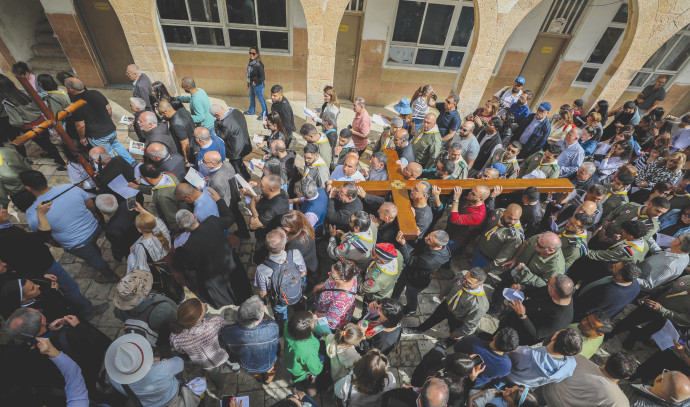
(COMMENT)Wow!
Israel's paid army of scripted and trained Hasbara trolls is really churning out the state propaganda especially since the Gaza Genocide.
Wow!
Israel's paid army of scripted and trained Hasbara trolls is really churning out the state propaganda especially since the Gaza Genocide.
Apparently, "Sophia" was even spit on with "respect. dignity, and full rights"
"Orthodox Jews filmed spitting at Christians in Jerusalem's Old City"

Orthodox Jews filmed spitting at Christians in Jerusalem's Old City
Prime Minister Benjamin Netanyahu: "We will show zero tolerance against those who harm worshipers" • The incident occurred during the Feast of Tabernacleswww.jpost.com
EXCERPT "Elisha Yered, who is the former spokesperson for MK Limor Son Har-Melech, wrote on Twitter that “the custom of spitting near churches or monasteries is an ancient Jewish tradition.” CONTINUED
Next, Israeli Jews love non Jews so much that almost half them want them ethnically cleansed:
“Nearly half of Israeli Jews believe in ethnic cleansing, survey finds”
http://www.independent.co.uk/news/world/middle-east/almost-half-of-israeli-jews-want-ethnic-cleansing-palestinians-wake-up-call-survey-finds-a6919271.html
EXCERPT “Almost half of Jewish Israelis believe Arabs should be "expelled or transferred" from Israel, a survey has found." CONTINUED.
Because Israel's Knesset rejected a bill that called for the equal treatment of Israel's Jews and Arabs, no one believes your Hasbara script so please get some new material.
"Knesset disqualifies bill seeking equal status for Jews and Arabs"
Israeli Knesset stops bill seeking equality for all
EXCERPT "Israel's Knesset disqualified a bill that called for all citizens to be treated equally, rejecting the argument it must recognise the rights of its Arab minority as equal to the Jewish majority.
Under the current Israeli political and legal system, Jewish citizens are accorded preferential treatment and privileges."CONTINUED
In this automatic unrelated response,
you reveal the intent to generally slander Jews,
rather than concern with the casualties of the current war.
